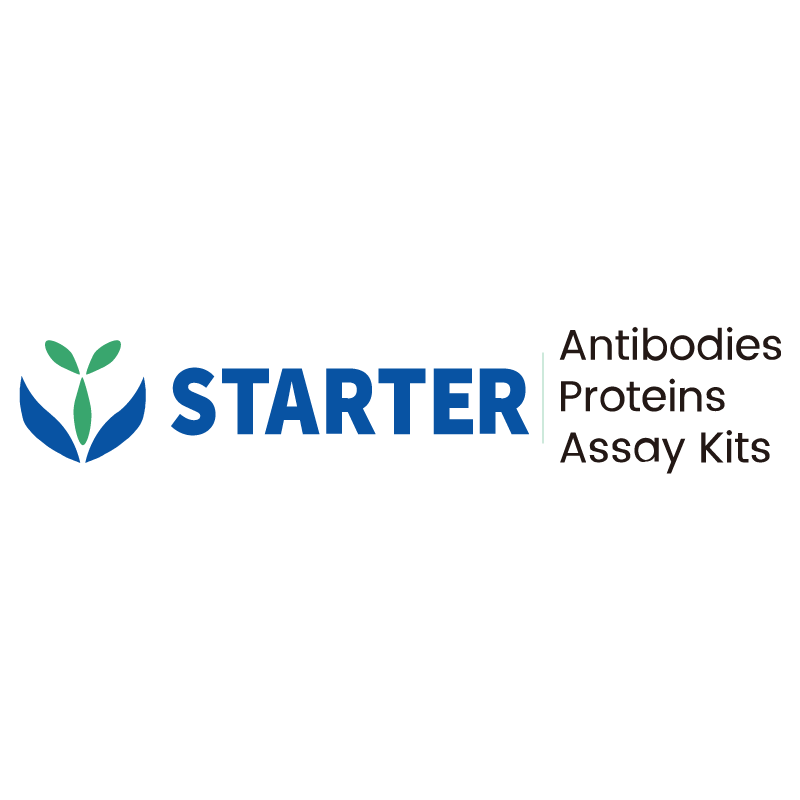Immobilized Mouse TNF-alpha Protein, His tag at 4 μg/mL (50 μL/well) can bind Biotinylated TNFR1/CD120a/TNFRSF1A His&Avi Tag, Human (Cat. No. UA010790) with EC50 of 8.937-11.09 ng/ml.
Product Details
Product Details
Product Specification
| Species | Mouse |
| Synonyms | Tumor necrosis factor, Cachectin, Cachectin, Tumor necrosis factor ligand superfamily member 2 (TNF-a), Tnf, Tnfa, Tnfsf2 |
| Accession | P06804 |
| Amino Acid Sequence | Protein sequence (P06804, Leu80-Leu235, with C-His tag) LRSSSQNSSDKPVAHVVANHQVEEQLEWLSQRANALLANGMDLKDNQLVVPADGLYLVYSQVLFKGQGCPDYVLLTHTVSRFAISYQEKVNLLSAVKSPCPKDTPEGAELKPWYEPIYLGGVFQLEKGDQLSAEVNLPKYLDFAESGQVYFGVIAL |
| Expression System | HEK293 |
| Molecular Weight | Predicted MW: 18.9 kDa Observed MW: 18.9 kDa |
| Purity | >90% by SDS-PAGE |
| Endotoxin | <0.1EU/μg |
| Conjugation | Unconjugated |
| Tag | with C-His tag |
| Physical Appearance | Lyophilized Powder |
| Storage Buffer | Lyophilized from a 0.2 μm filtered solution of 0.2M PBS, pH7.4. |
| Reconstitution | Reconstitute no more than 1 mg/mL according to the size in deionized water after rapid centrifugation. |
| Stability & Storage | 12 months from date of receipt, -20 to -70 °C as supplied. |
Background
Tumor necrosis factor is a cytokine and member of the TNF superfamily, which consists of various transmembrane proteins with a homologous TNF domain. It is the first cytokine to be described as an adipokine as secreted by adipose tissue. TNF signaling occurs through two receptors: TNFR1 and TNFR2. TNFR1 signaling tends to be pro-inflammatory and apoptotic, whereas TNFR2 signaling is anti-inflammatory and promotes cell proliferation. Suppression of TNFR1 signaling has been important for treatment of autoimmune diseases, whereas TNFR2 signaling promotes wound healing. The primary role of TNF is in the regulation of immune cells. TNF, as an endogenous pyrogen, is able to induce fever, apoptotic cell death, cachexia, and inflammation, inhibit tumorigenesis and viral replication, and respond to sepsis via IL-1 and IL-6-producing cells. Dysregulation of TNF production has been implicated in a variety of human diseases including Alzheimer's disease, cancer, major depression, psoriasis and inflammatory bowel disease (IBD).
Picture
Picture
Bioactivity
SDS-PAGE
2 μg(R: reducing conditions)


